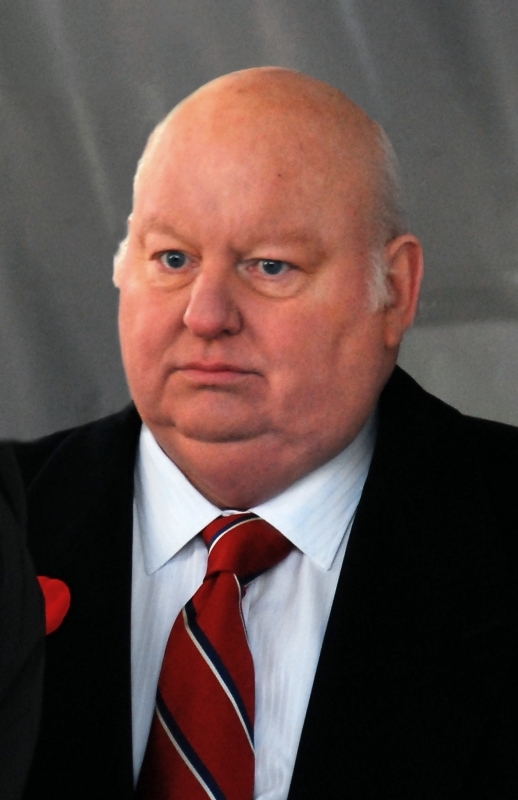There are two lessons we can learn from the trial of Senator Mike Duffy even before it gets very far.
First, Prime Minister Stephen Harper has happily used the Senate not for its constitutional purpose but rather to provide taxpayer-funded, partisan star power to his Conservative Party.
And second, behind the shield of a compliant parliamentary majority, Harper’s taxpayer-funded Prime Minister’s Office (PMO) has become as much a partisan agency of the Conservative Party as an office of the government of Canada.
When the Prime Minister appointed Duffy and Pamela Wallin to the Upper House he knew they did not live in the provinces for which they were appointed.
The Constitution specifies rather few qualifications for Senators.
One is that they should be 30 years of age and “subjects of the Queen.”
Another is that they should own property worth at least $4,000 in the provinces (or, in the case of Quebec, the electoral divisions) they represent.
Yet another is that they should — in the exact words of the British North American Act — be “resident in” the provinces (or, again, in the case of Quebec, the electoral divisions) they represent.
Duffy and Wallin lived in Ontario, full stop
The Prime Minister and then Government Leader of the Senate, Marjory LeBreton, knew that last qualification posed problems for Duffy and Wallin.
Both were legal residents of Ontario when appointed to represent Prince Edward Island and Saskatchewan.
The PM and LeBreton were so vexed by this conundrum that they asked a staffer to do a little research to see if the Senate might possibly expel a member who did not legally qualify because of residency.
That staffer assured LeBreton and the Prime Minister that the Senate has never concerned itself with Senators’ legal residency.
Historically, the Senate has only shown interest in the property qualification.
In his song “Fathers’ Day” Groucho Marx wrote: “According to our mother you’re our father and that’s good enough for us…”
The Senate’s version is: “You own the four thousand bucks worth of property, and that’s good enough for us!”
Now, it is entirely possible that, legally, the constitution’s phrase “resident in” does not mean “resident of.”
If it were ever tested in court — which it never has been — to fulfill the British North America Act’s residency requirement, it might be sufficient for Senators to merely visit the provinces they represent, from time to time, without having their principal residences in those provinces.
Indifferent to the Senate’s ‘federal’ role
The Prime Minister has come close to making that argument.
When Opposition Leader Tom Mulcair asked Harper why he appointed people to the Upper House knowing they were not legal residents of the provinces they were supposed to represent, the Prime Minister skated away from the question, arguing that it is common for people to have more than one residence.
There is, however, most likely a good reason for which the Constitution stipulates rather more stringent residency requirements for Senators.
Members of the House of Commons are not subject to any residency requirements whatsoever. If the voters of a given riding choose someone to represent them, knowing that person does not live in the riding, that is the voters’ democratic right.
One of the notional functions of the non-elected Senate, however, is its “federal” role.
Senators are, in part, supposed to be spokespeople for their provinces, over and above partisan concerns.
For senators to be able to genuinely fulfill that “federal” role, those who framed the constitution deemed that these spokespeople should live in the provinces for which they speak.
The authors of the BNA Act lived in a time before provincial health cards, driver’s licenses and income tax, so did not specify what “resident in” meant, technically. What they cared about was that senators be genuine voices for their own provincial interests; not carpetbagging, partisan politicians.
Harper and his yes-men and advisors in the PMO obviously did not care a whit for the Senate’s constitutional, “federal” role.
When Harper named Wallin and Duffy he did not do so in order for them to stick up for Saskatchewan and Prince Edward Island.
He only wanted them to shill for the Conservative Party — at taxpayer expense.
The Duffy trial may give us some detailed insight into what exactly the Prime Minister told his non-resident Senators he expected of them when he named them.
The PMO as Politburo
As for the insight Duffy’s (and Wallin’s, and Brazeau’s) troubles gives us into the degree to which the PMO has become more of a Soviet-style Politburo than an entity of the Canadian government, just look at the long list of PMO apparatchiks who are likely to testify at the Duffy trial.
All of them are, or were, taxpayer-paid officials of the government of Canada, not employees of the Conservative Party of Canada.
And yet, when Duffy, Wallin, et. al. became an embarrassment for the Party, the business of Canada took a back seat while PMO staffers devoted themselves with single-minded focus to the interests of the Conservative Party.
That’s what you get with Harper’s version of one-party rule.
Keep it in mind next time you hanker for a “stable, majority government.”



